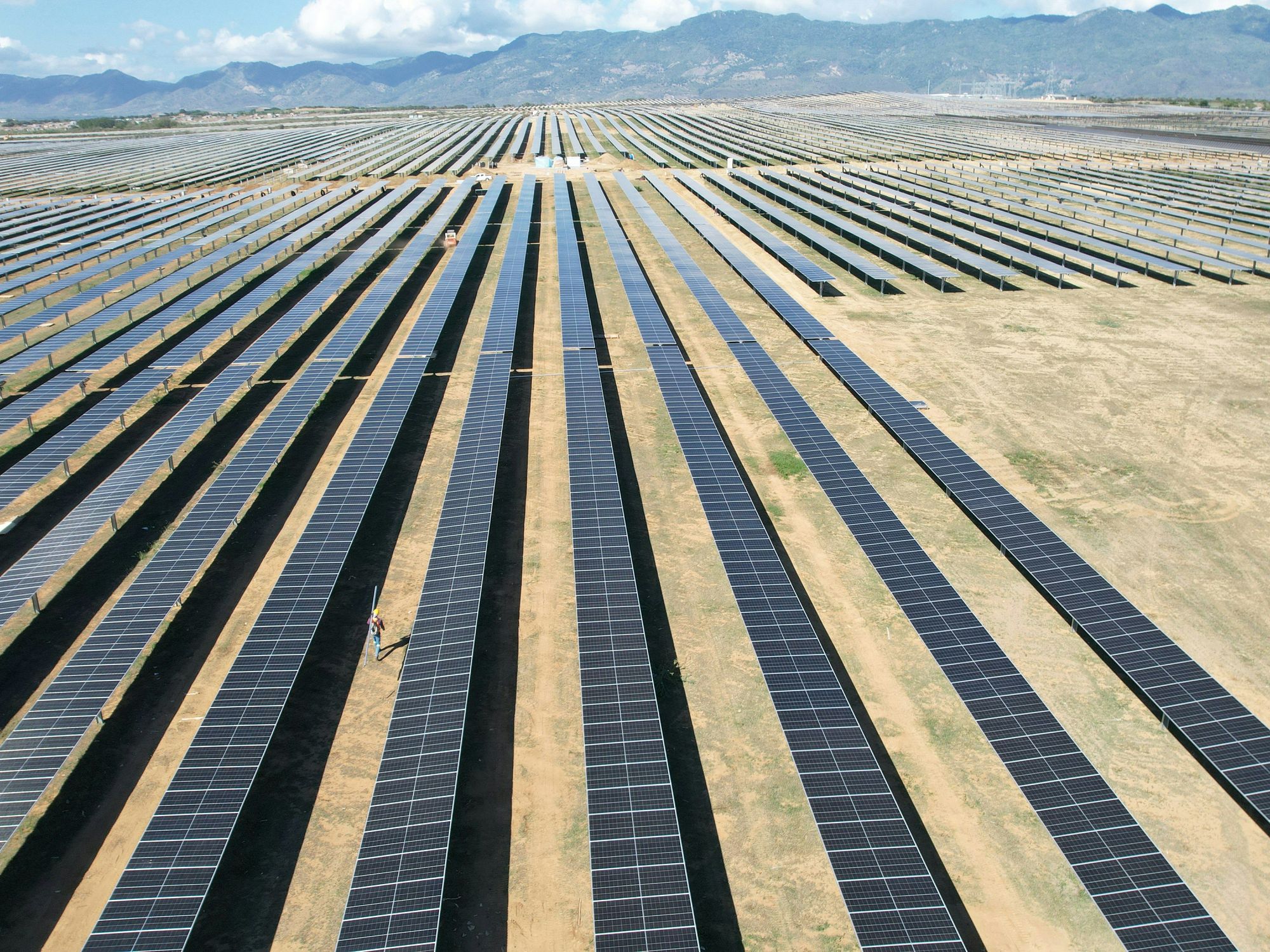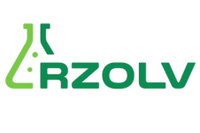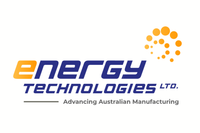Cleantech Market Update: Q2 2024 in Review
Discover the latest trends and insights in the cleantech industry with this comprehensive review of the year's second quarter.

As the global focus on sustainability continues to grow, the cleantech sector has become a key player in driving the transition toward a greener and more resilient future.
What developments, trends and innovations shaped the cleantech landscape in the second quarter, and what opportunities and challenges lie ahead in 2024? Read on to find out.
Collision Conference speakers highlight cleantech opportunities
Cleantech, a catch-all term that covers sustainable companies working across a broad range of sectors, was a prominent topic at this year's Collision Conference, held in Toronto from June 18 to 20.
Speaking at the event, Rachel Slaybaugh, a partner at DCVC, a deep tech venture capital firm, commented on increasing investment in climate solutions due to their economic benefits. She pointed to electric vehicles (EVs) as a compelling example, saying that they offer lower costs and a positive driving experience.
During a separate discussion, Chante Harris, founder and managing partner at Eunoia, told the audience she's seen a surge of venture capital funding for cleantech in recent years. She pointed to policies in the US such as the Inflation Reduction Act, the Chips Act and the Bipartisan Infrastructure Law as catalysts supporting growth.
Despite the increased interest in climate solutions, data gathered by PitchBook shows that startup funding was lower in all sectors for the first half of 2024; artificial intelligence (AI) companies were an exception.
The US Federal Reserve’s reluctance to lower interest rates in the face of sticky inflation has impacted investment activity — total cleantech funding for H1 was down 20 percent year-on-year to US$11.3 billion.
However, the average deal size between Seed and Series A saw an increase of 19 percent year-on-year in H1, indicating that investors are becoming more selective and are focusing on higher-quality opportunities with a better chance of success, rather than spreading their investments across a larger number of riskier ventures.
Unsurprisingly, due to the increased energy demands of AI, the energy sector was one of the least impacted verticals, with only a 7 percent drop in funding, as well as some notable deals.
Amid the escalating climate crisis and a projected CAGR of 5.94 percent in the cleantech industry between 2023 and 2027, cleantech investments hold significant potential for profitability while addressing urgent environmental challenges.
Solar and geothermal energy make advances
Well-established renewable energy sectors such as wind and solar, hydropower and geothermal energy continued to demonstrate their potential in the second quarter of this year.
First Solar (NASDAQ:FSLR), a US solar manufacturer, became the world’s most valuable solar company on May 16, when it overtook Shenzhen-based Sungrow Power Supply (SZSE:300274) and achieved a market cap of US$21.15 billion.
The Biden administration's accusations that China is engaging in anti-competitive practices, and its efforts to reduce US reliance on Chinese solar panels, are seen as contributing to the declining value of Chinese solar companies.
Meanwhile, advances in geothermal technology highlight the increasing interest in this significant, carbon-free energy sector. A summary from the Cleantech Group outlines the potential growth of the geothermal energy sector through advances in drilling technology and the utilization of infrastructure designed for oil and gas projects.
Project Red, a power plant site operated by Fervo Energy in partnership with Google, has demonstrated the effectiveness of horizontal well drilling, a method developed by the oil and gas industry that has proven uses in geothermal energy production by allowing for increased surface area contact with geothermal resources.
The site harnesses geothermal energy by pumping water deep enough into the ground to heat it and then extracting hot water and steam to generate electricity. The project has been powering a local grid in Nevada since November 2023, and the company is currently building a geothermal power station in Utah. It expects Phase I to begin delivering power by 2026. In the second quarter, Fervo also signed deals with Italian power generation company Turboden and Southern California Edison to optimize geothermal energy production and supply clean power to electrical grids.
As the importance of resilient grid infrastructure grows, especially due to AI's high power needs, it will become more crucial to explore and adopt technologies that can strengthen power systems and ensure reliable energy supply.
EV battery recycling gains traction
Batteries are a crucial component of the world’s transition to renewable energy sources, but their production relies on mineral extraction, presenting a complex challenge. The growth of a profitable EV battery recycling industry offers a promising solution to mitigate the environmental impact of mineral extraction and promote a circular economy.
According to Parker Bovee, an associate at the Cleantech Group, global demand for battery metals like lithium, nickel, graphite and cobalt is expected to grow by over 100 percent by 2040.
“Due to this surge, we anticipate a parallel growth in the battery recycling industry through several distinct, potentially non-competitive technologies. Battery recycling directly reduces mining demand, especially in markets like the European Union (EU) or the U.S. with limited mining or refining of critical minerals like lithium, cobalt, and nickel,” he wrote.
Bovee explained that nickel-rich lithium-ion batteries made with recycled materials reduce total greenhouse gas emissions by over 28 percent compared to batteries made with new materials. By 2040, the global demand for minerals for new batteries could decrease by up to 30 percent if recycled mineral resources are used instead.
China is the world’s undisputed leader in battery production, according to the International Energy Agency, and it has strict export restrictions on graphite, a crucial element for lithium-ion batteries. A robust battery recycling industry is not only environmentally responsible, but strategically prudent to ensure a stable supply of raw materials.
Redwood Materials, a privately traded company established by Tesla (NASDAQ:TSLA) co-founder JB Straubel and backed by major investors like Ford (NYSE:F) and Goldman Sachs (NYSE:GS), is a key player in this developing sector. Through a process called pyrometallurgy, Redwood uses high temperatures to extract, process and refine minerals from discarded batteries to create cathode and anode materials that can be used in EV batteries.
Publicly traded companies in this space include Sumitomo (TSE:8053) and Li-Cycle (NYSE:LICY), a Canadian company that uses hydrometallurgy to extract minerals. There's also Ascend Elements, which has developed advanced graphite recycling technology. Ascend Elements has a recycling plant in Georgia and is currently building a second one in Kentucky. In April, the firm partnered with Poland's Elemental Strategic Metals to build recycling plants in Europe.
Solid-state batteries are another promising innovation in the EV battery landscape. They use solid electrolytes, rather than liquid, to carry lithium between a battery’s positive and negative electrodes, making them less susceptible to overheating. Solid-state batteries also charge faster and can travel further on a single charge than current EV batteries.
The growing popularity of EVs in the Asia-Pacific region is catalyzing the development and advancement of solid-state battery technology there. Nissan Motor (TSE:7201) is developing solid-state batteries at a pilot plant near Tokyo, and expects the first to be manufactured in March 2025, while the Chinese government has pledged more than 6 billion yuan (US$830 million) for research into solid-state battery development.
Competition among EV manufacturers intensifies
In the second quarter of the year, the EV industry faced a shifting landscape as market realities and regional differences slowed the growth trajectory, leaving companies with a surplus of EVs.
In April, both Ford and Tesla implemented price reductions on several of their models, with Tesla initially cutting prices by as much as US$5,000 on certain Model Ys; it later reduced Model Y prices by an additional US$2,000, and cut prices for its Model X and Model S vehicles as well. Similar price slashes were made by Tesla in Europe and Asia, and the company also cut more than 10 percent of its workforce on April 15 to reduce costs.
Tesla’s Q1 results, released on April 23, revealed a 9 percent drop in revenue, the largest reduction the company has seen since 2012; however, CEO Elon Musk’s accompanying announcement of a more affordable model to come earlier than previously anticipated aided in avoiding a market setback.
Earlier in the month, sources for Reuters reported that the development of the new model had been scrapped. Musk described the story as a “lie,” but failed to specify its inaccuracies. The situation appears to be evolving, and it’s unclear whether the lower-cost EV will be a new model or a simplified version of existing vehicles.
Tesla also reduced the monthly subscription for Full Self-Driving (FSD) from US$199 to US$99, and lowered the cost of the software to US$8,000 from US$12,000. The company has faced legal challenges in the US in regards to its use; the National Highway Traffic Safety Administration (NHTSA) opened a probe on April 26 into whether Tesla’s Autopilot safeguards were enough to protect drivers from crashes, prompting a recall of over 2,000 vehicles.
Conversely, Waymo, which started as a self-driving car project from Google, has had moderate success with its partnership with Uber Eats and its autonomous driving service in San Francisco, Phoenix, Los Angeles and Austin. On June 5, its grid was expanded to include an additional 90 miles of the Metro Phoenix area.
On the flip side, Tesla's FSD technology has made significant progress in China. Musk met with the country's premier, Li Qiang, on April 28, and after confirming that FSD complies with China's stringent data security laws, Li gave his approval for the technology. Additionally, Musk entered into a mapping and navigation agreement with Baidu (NASDAQ:BIDU,HKEX:9888), which resulted in a 15 percent increase in Tesla's stock price.
Musk’s trip to China shows the key role geopolitics play in the EV industry. Chinese EV exports surged in Q2, hitting a record high in April even as domestic sales dipped. This trend underscores the global appeal of Chinese-made EVs, particularly as manufacturers pack their vehicles with advanced technology while keeping prices competitive.
A price-driven strategy has not come without its challenges, however; aggressive price cuts ate into BYD’s (OTC Pink:BYDDF) Q1 revenue, missing expectations by more than 10 billion yuan, and a week of lackluster EV quarterly results in May revealed that the price war between major players is hitting smaller companies hard.
To combat China’s growing dominance, the Biden administration has hiked tariffs on Chinese EVs to 102.5 percent, although experts have warned that this decision could threaten progress to its clean-car initiative.
The EU has also imposed high tariffs on Chinese EV companies, although some member states have opposed them due to their potential impact on the domestic automotive industry and supply chain.
Investor takeaway
Looking ahead, the cleantech market continues to evolve. Innovation remains robust, with emerging technologies set to play a pivotal role in shaping the transportation and energy landscape. As these industries navigate the challenges of shifting market dynamics, the race for more sustainable, efficient and accessible solutions continues to heat up.
Don’t forget to follow us @INN_Technology or real time updates!
Securities Disclosure: I, Meagen Seatter, hold no direct investment interest in any company mentioned in this article.





